The discussion was opened and shared with all cross-border stakeholders, development partners, implementing partners and IGAD policy makers, on the theme the impact of Covid-19 pandemic on the delivery of project objectives.
The discussion was based on the three questions:
- What are your experiences in delivering services and implementing programmes in cross-border areas during the COVID-19 pandemic?
- How do you think COVID-19 will affect the delivery of your projects?
- What measures have you put in place to mitigate and respond to these challenges? How can other stakeholders support?
The online discussion was posted online for more than 15 days and about ten people (mostly those implementing EUTF-funded projects) made valuable comments, recommendations and made suggestions on the way forward. We have gone through each contribution and tried to analyse the outcome of the online discussion as follows.
Key points
- Cross border movement of people and goods has been affected due to local and cross border travel restrictions in Kenya, Ethiopia and Somalia. This has had the effect of slowed down implementation of cross border activities or the need to change how they are implemented with more shift towards remote digital means.
- There are high levels of uncertainty since no one has sufficient data on Covid-19. There is need for flexible review of plans which may lead to increased requests for no cost extensions and contingency funds due to unexpected realities.
- Some changes in the work plan and the resource allocation to include activities in response to COVID 19 crisis (radio programming, provision of PPE, provision of water sanitation facilities, etc) have become necessary.
- Coordination and pooling of resources to respond to Covid 19 among partners is needed for effectiveness, minimize duplication of effort and evenly distribute resources and deliver support to the community, and sharing of plans to see how each partner can complement the activities of other partners.
- Most of the SECCCI activities being implemented by IGAD and other partners require meetings, be it community dialogues, awareness creation of capacity development workshops and coordination or cluster technical meetings. Although a number of project activities have been successfully organized virtually or remotely, the fact remains that physical meetings and presence in the field are key elements in every project implementation.
- Closing of borders affected the coordination of the cross-border activities since programme staff could not cross with ease at the border in addition to the limited time available due to imposition of curfew in some states. There were food shortages in some border areas and instructions were given not to have meetings, and to work from home. With these instructions you cannot have an effective coordination of stakeholder meetings as planned.
- COVID-19 pandemic has further disrupted input supply chains and service provision affecting accessibility and affordability of industrially produced livestock feed and forage seeds employed for supplemental feeding, reseeding or rehabilitation measures in strategic areas of the Rangelands (e.g. riparian zones) . Furthermore, livestock markets’ closure has severely affected local demand for livestock products which has caused a slump in livestock sales and declining intake and offtake thereby extremely slowing down livestock sector economies
Recommendations
- A response measure towards ensuring relief and recovery for such exposed borderlands communities should be explored by all project partners. However, the remaining project timeframe leaves doubt as to whether this is ever going to be achieved.
- The current pandemic of COVID-19 has been posing an enormous challenge in borderlands, we should also have a perspective to see it as an opportunity to strengthen a range of basic systems in borderlands which lasts beyond the pandemic.
- Strengthen local health system by providing urgently needed health supplies, rehabilitation of health infrastructure, managing health waste, etc.
- Develop a Crisis Management and Response Plan through which inclusive and integrated crisis management system can be promoted and jointly applied, monitored and reviewed, ensuring rights-based approaches
- Strengthen local institutions to uphold rule of law and human rights, address exacerbated gender inequalities, mitigate risks of all sorts, and build resilience
- Conduct local Social and Economic Impact Assessment to design social protection systems, response to gender-based violence, women’s and youth’s economic empowerment.
- Support local authorities to face the consequences of COVID-19 outbreak by sharing guidance/ good practices from past disease outbreaks and assist them to set up emergency management systems
- Strengthen social cohesion and peaceful coexistence through clear communication on COVID 19 and what the government is doing to alleviate any perception of inequality.
- Design COVID-19 communication strategies in different local languages to reach communities in collaboration with local governments and other agencies.
